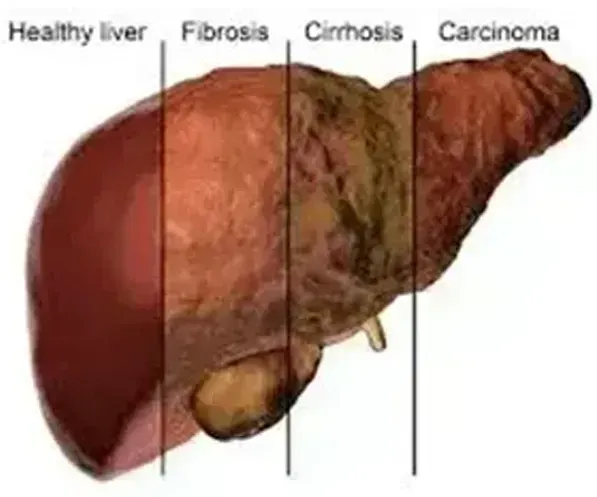Is there anything I can do to prevent further liver damage?
Yes. To help protect your liver:
- Avoid alcohol
- Talk to your doctor before you start taking any new medicines, including pain killers such as ibuprofen (sample brand names: Advil, Motrin), naproxen (sample brand name: Aleve), or acetaminophen (sample brand name: Tylenol). Also talk to your doctor before taking any herbs, vitamins, or supplements. Some medicines and supplements can damage the liver.
- Get vaccinated against hepatitis A and B if you have not had the infections before
How is cirrhosis treated?
Treatments depend on the cause of cirrhosis, how severe it is, and what symptoms you have. Treatments fall into a few main categories, including those that:
- Treat the cause of the disease – Some causes of cirrhosis can be treated. For example, people with cirrhosis caused by alcohol abuse can try to stop drinking. People with chronic hepatitis C or B can take medicines.
- Lower the risk of bleeding – Cirrhosis can cause the blood vessels around the esophagus to swell or even burst and bleed. To prevent that from happening, doctors can:
- Prescribe medicines called "beta blockers." These medicines reduce blood pressure in the liver, and help reduce the chance of bleeding.
- Place tiny bands around the swollen blood vessels (this procedure is called "variceal band ligation")
- Decrease fluid buildup in the belly – In people with cirrhosis, the belly sometimes fills with fluid. To decrease fluid buildup, doctors can:
- Prescribe medicines called "diuretics." These medicines make you urinate a lot. People who take diuretic medicines often must also reduce the amount of salt they eat.
- Drain the fluid from your belly using a needle (this procedure is called a "paracentesis")
- Implant a device in the liver that reduces fluid buildup in the belly (this procedure is called "TIPS")
- Treat or prevent infection – People with cirrhosis have a higher than normal chance of getting infections. When they get an infection, they can also get much sicker than people without cirrhosis. As a result, people with cirrhosis sometimes need antibiotics to either treat or prevent infection. Most people with cirrhosis should also get the flu vaccine and other vaccines to prevent common infections.
- Treat confusion – Advanced cirrhosis can lead to confusion. Doctors usually use lactulose (a medicine that softens stool) or certain antibiotics to treat the confusion.
Will I need a new liver?
People with severe cirrhosis need a new liver. Talk to your doctor about the surgery before you get too sick, to find out if a liver transplant might be an option for you. People often have to wait for up to 2 years to get a new liver.
Can cirrhosis be prevented?
You can reduce your chances of getting cirrhosis by:
- Getting help if you have an alcohol problem
- Getting the vaccines for hepatitis B and hepatitis A, if you haven't already
- Using condoms when having sex
- Not sharing drug needles


